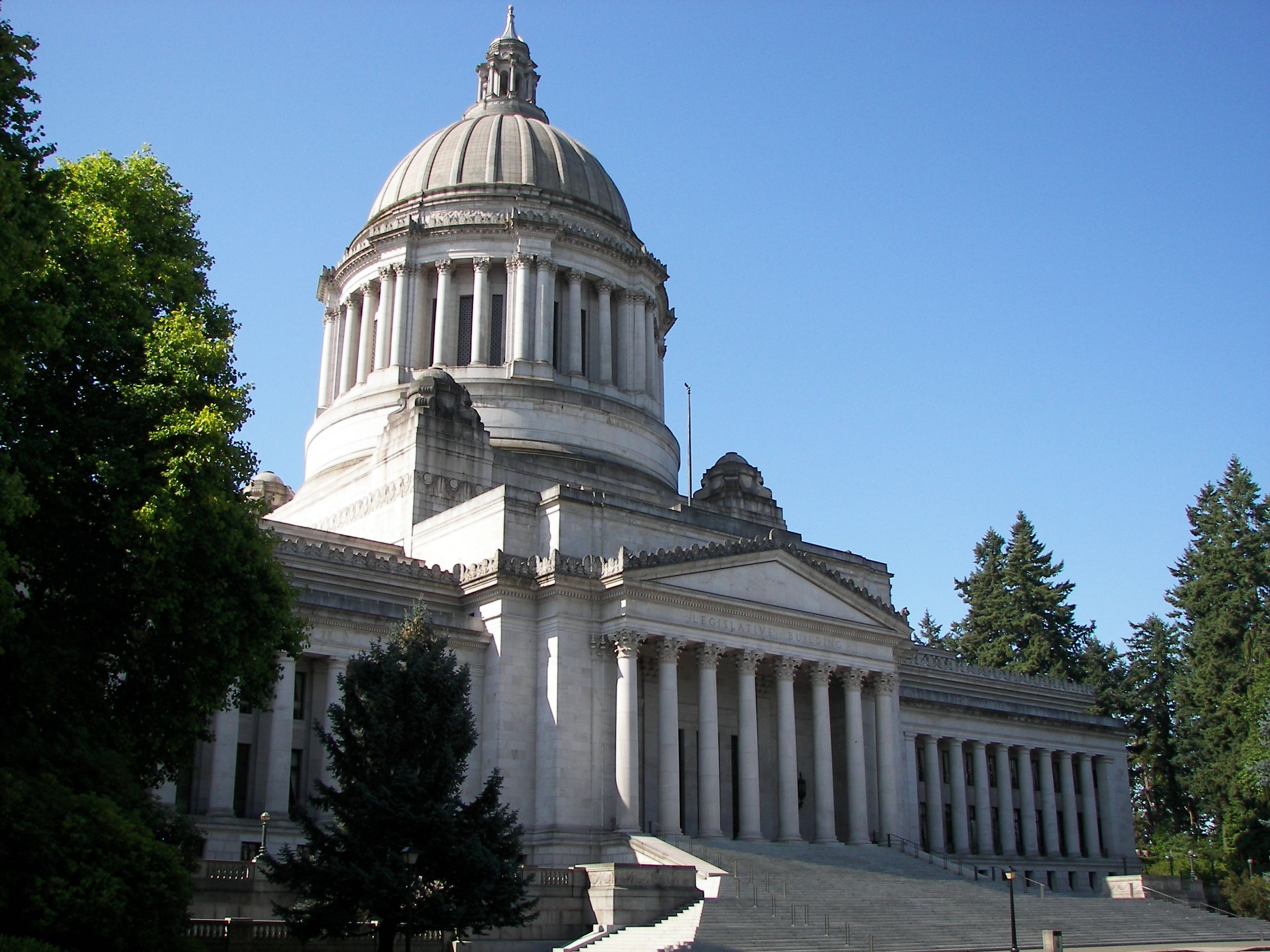This morning the Senate Law & Justice Committee held a public hearing on SJR 8205: Amending the state Constitution so that justices of the supreme court are elected by qualified electors of a supreme court judicial district.
The hearing provided an opportunity for Senators to ask questions of the Supreme Court as Justice Debra Stephens offered her thoughts on the proposal.
I also had the opportunity to testify remotely via the phone. Here is my testimony.
According to the bill report for SJR 8205:
The Washington State Constitution is amended for only the primary election of justices of the Supreme Court. A justice of the Supreme Court is elected by judicial district. Each justice must be a resident of the district where the justice is elected or appointed for not less than one year at the time of election or appointment. Four justices are elected for district one; three justices are elected or district two; and two justices are elected for district three. The judicial districts for Supreme Court elections must contain the same counties as for districts of the Court of Appeals. If a vacancy occurs in office, the Governor appoints a person to fill the position from the district where the vacancy occurs. Election of justices of the Supreme Court at the general election are unchanged and are elected statewide.
This is a variation of the judicial district election concept proposed by HJR 4201.
Why does any of this matter?
Currently only one of the nine justices on the state Supreme Court lived in Eastern Washington at the time of appointment/election, Justice Debra Stephens. Had she not won her election, all of the state's Supreme Court justices would be from the Puget Sound region.
In recent years, any Supreme Court Justices from Eastern Washington have gotten their start on the Court via an appointment. Justice Stephens was appointed by Governor Gregoire and the last justice prior to her, Justice Richard P. Guy was appointed by Governor Gardner.
This realistically means that unless a Governor first makes an appointment from Eastern Washington it is unlikely there will be a Justice from that side of the state on the Supreme Court.
Should that matter?
Although Justices are not representatives but instead are charged with making impartial decisions based on matters of law, the life experiences of those that serve us on the Court are important in helping them make their decisions. This is why along with the Court having diversity of gender and ethnicity among its ranks it should also have diversity of geography and cultural experiences from across Washington State.
This is something Gov. Gregoire understood when she appointed Justice Stephens to the Court. Gregoire said:
An appointment from Eastern Washington really fundamentally lets our citizens know that we are one Washington and that people in Eastern Washington are represented on this court as well.
Gregoire also told the Seattle Times:
People in Eastern Washington feel that there ought to be some representation on the high court.
If SJR 8205 is enacted and ratified by the people, district based elections for the Supreme Court would not be unique to Washington. Currently there are 10 other states that use districts for the election/retention of their justices.
Here is a breakdown of how Supreme Courts are elected across the country:
- Justices directly elected: 21 states (4 district based – Illinois, Louisiana, Kentucky, Mississippi)
- Justices appointed and subject to retention votes: 17 states (6 district based – Florida, Maryland, Nebraska, Oklahoma, South Dakota, Tennessee)
- Justices appointed not subject to any elections: 12 states
As this proposal moves forward special attention should be paid to the definition of residency. As noted by Justice Stephens in her testimony, requiring Justices to maintain active residence in their district while serving full-time in Olympia to attend matters for the Court could dissuade otherwise qualified candidates from across the state from running. The goal of the residency requirement should not be to create "Commuter Justices" but instead to ensure that at the time of initial election/appointment the candidate is from the judicial district. This residency qualification could remain valid while the Justice serves on the bench in Olympia.
We agree with former Supreme Court Justice Guy when he said:
It is very important that the Washington State Supreme Court have the diversity of viewpoint that a justice from Eastern Washington brings to the bench.
By changing the way we elect Supreme Court Justices to district based election we work toward a Court that is truly reflective of "One Washington" and not just the Puget Sound, while also facilitating more choices for voters, fewer cost barriers to running and increasing the opportunity for voter engagement.
Additional Information
Electing the state Supreme Court by districts




